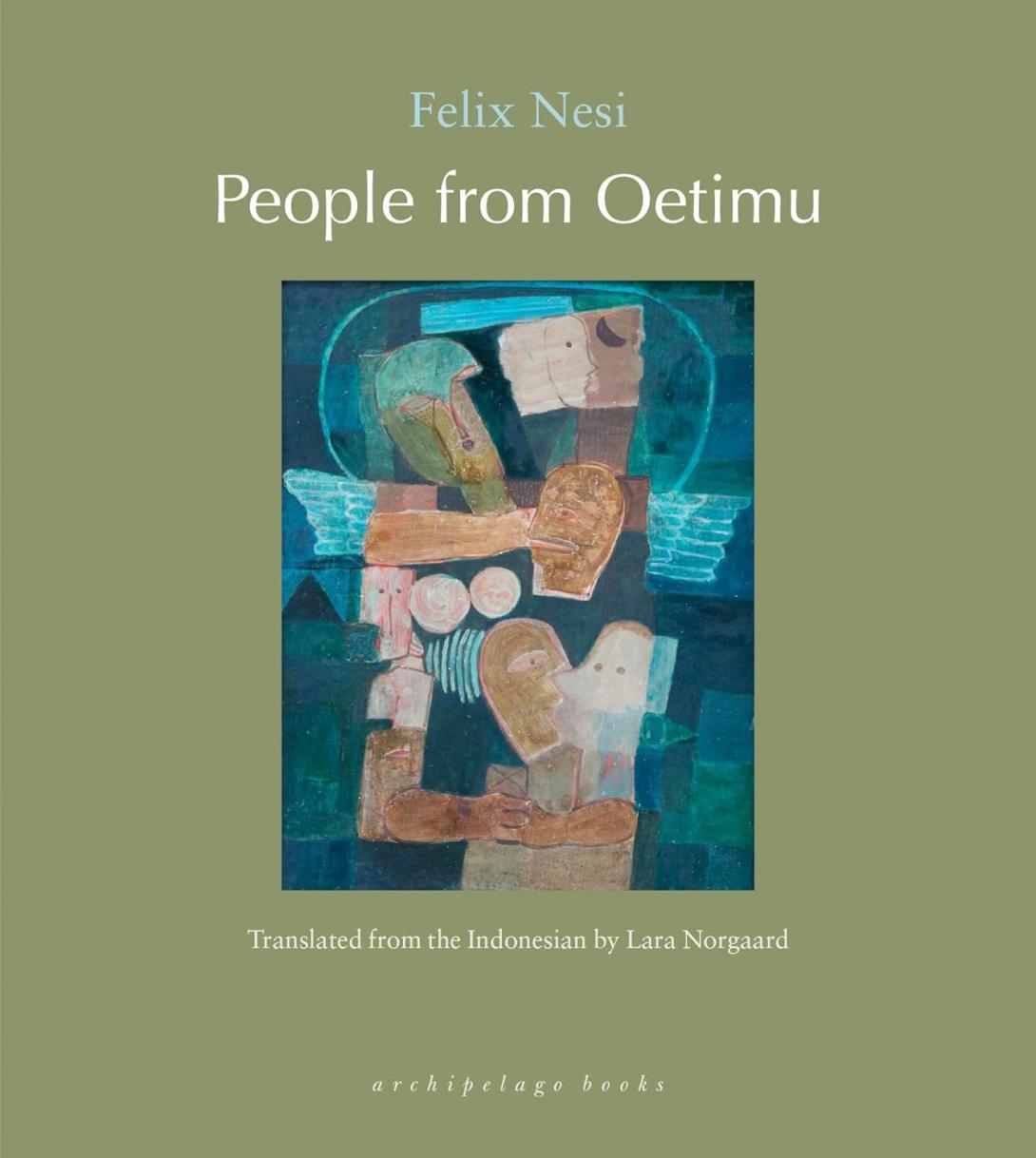Driving through the cold of a moonlit night

 Archipelago Books
Archipelago BooksFelix K. Nesi | People from Oetimu | Archipelago Books | 250 pages | 20 USD
Anyone who has read David van Reybrouck's gripping historical narrative Revolusi about Indonesia's struggle for independence and its surprising role in the rapidly changing world order after the Second World War, based on over 200 contemporary witnesses, will want to delve further into the complex history of the world's fourth most populous country.
This is not the only reason why Felix K. Nesi's novel People from Oetimu is timely; Nesi's oldest protagonist, Am Siki, could actually be one of Reybrouck's contemporary witnesses, having lived through the Japanese occupation and, because he burned down one of their labour camps, he is even one of the heroes of Oetimu, a small town on the island of Timor, far from the Javanese centre of Indonesia. While of course this is not the core of Nesis' story, it is something like the root of a narrative firework that, like all roots, branches out into the depths and reaches high into the sky.
Nesi's 300-page novel actually begins with a TV party thrown by Ipi, the village policeman, who has invited all the men of Oetimu to watch the 1998 World Cup final between Brazil and France with him and to celebrate his imminent marriage to the young, highly talented Silvy. From this event, Nesi winds her way through Ipi and Silvy deep into the tragic and grotesque life stories of Timor, without ignoring the political turmoil that has shaped the past just as much as the present told here. This is largely reflected in the New Order years under President Suharto, who not only used all available means to prevent the independence of part of Timor, but also infested the entire country with ruthless autocratic populism, nepotism and corruption. The smug and merciless descriptions of this policy and its repercussions on the lives of the individuals described here seem almost topical, because like every autocratic populist, Suharto also resorted to means that, with a quick glance at developments in the USA, Russia or China, are frighteningly congruent with today's strategies.
However, Nesi's novel is anything but an activist novel. Instead, Nesi tells above all about the full lives and the suffering of his protagonists with an intensity that repeatedly leaves the reader dizzy. Exhuberant sex is juxtaposed with Catholic abstinence and the attempts of all those involved to make the best of their lives, no matter how heavy the burden of past and present may weigh.
The great thing about this novel, however, lies not only in the almost ethnographic-documentary moments interwoven with the vignettes of life, such as Ipi's nocturnal and final motorcycle ride, which Nesi manages to depict with cinematic density and which focuses on a region of Indonesia that, unlike the centre of the country, is not Muslim, but Catholic, due to the centuries-long occupation of the Portuguese colonial power. However, just as Islam on Java and other regions does not necessarily correspond to what the Western gaze expects and as the writer and literary scholar Nenden Lilis Aisyah impressively describes in the interview, Nesi's approach to Catholicism and its penetration into everyday life is also somewhat different. But besides these surprising scenarios, Nesi also surprises with his narrative style, which draws on the traditions of oral storytelling culture not only on Timor. This means that narrative threads are woven subcutaneously, especially through the characters, and that with each newly "introduced" person, we are pushed further into the past, only to return at some point to the beginning of the narrative spiral, the year 1998 and the World Cup final.
Although Nesi's extremely successful novel in Indonesia - now in its sixth edition - has shown that literature from the country's cultural periphery also has its legitimacy, it is precisely the significance of violence, reflected not only in the narrative incoporation of propaganda films such as Pengkhianatan G30S/PKI and the justification of the massacres after September 30, 1965, which reminds us of authors from the centre of the country such as Hamsad Rangkuti and his story Sukri Slips the Blade.
Felix K. Nesis' story from colonial times - Captain Wants to Go to Dili - on literature.Review
Like Rangkuti and, incidentally, the complex poetry in Indonesia, Nesi also possesses a subtle, liberating humour that not only makes the terror, the omnipresent violence and the miseries of everyday life bearable, but also has an almost salutary, even conciliatory character, without ever allowing the criticism of existing misery to degenerate into petty grumbling. It is this that makes Nesi's novel not only a special, but above all a universal work that should not only fascinate readers of David van Reybrouck.



